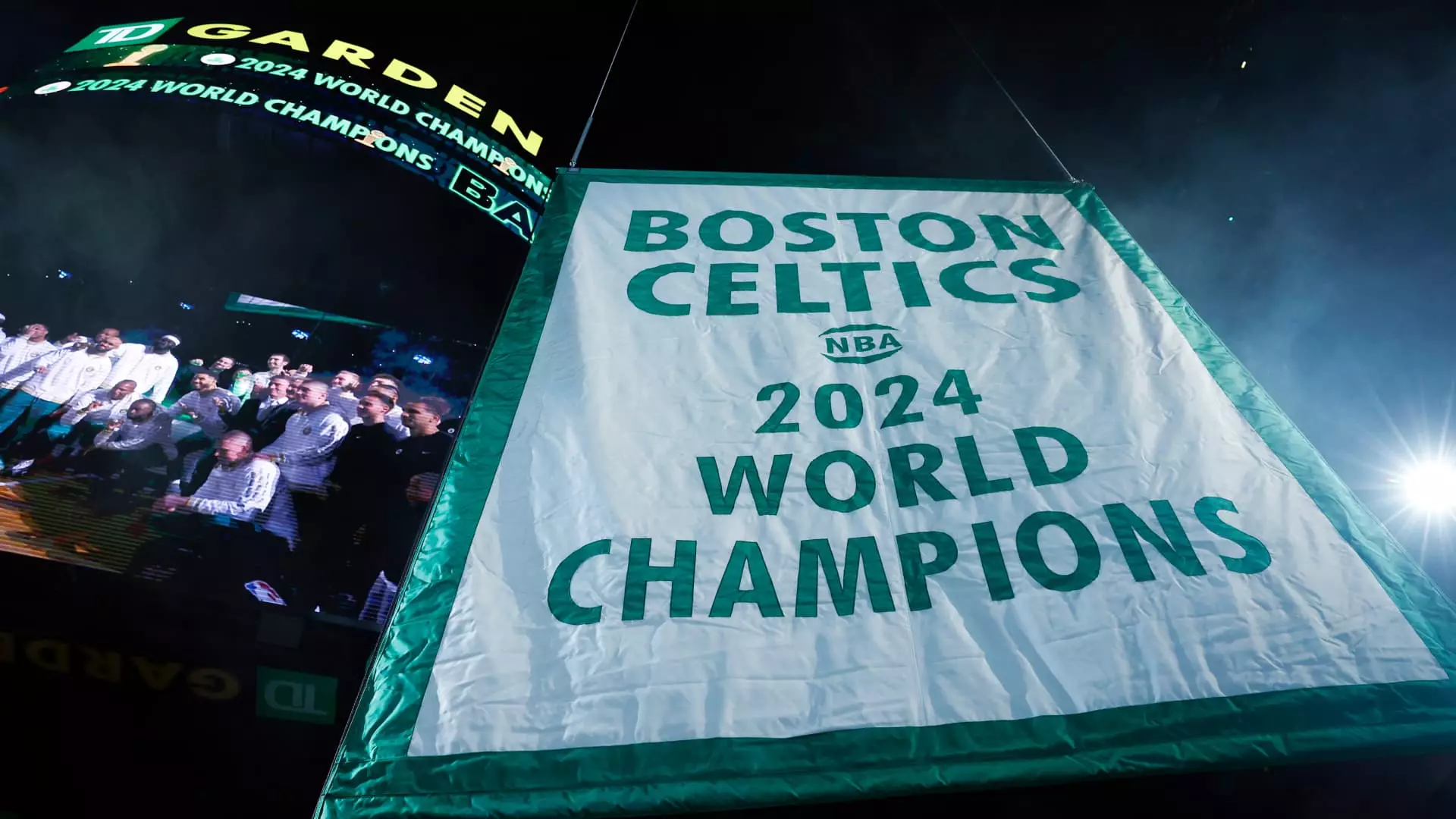The Boston Celtics, a franchise steeped in rich history and unmatched legacy, is now officially under the stewardship of a new owner group, led by private equity executive Bill Chisholm. Valued at an eye-popping $6.1 billion, this sale showcases not only the soaring financial landscape of sports franchises but also sheds light on the implications of such an investment on local culture and fan engagement. With the involvement of power players like Sixth Street and a conglomerate of notable businessmen, this transition marks a pivotal moment for the Celtics—and potentially for the NBA as a whole.
Sporting the highest price tag ever attached to a sports team in the United States, surpassing the previous record set by the NFL’s Washington Commanders, this sale is emblematic of an industry increasingly catering to deep-pocketed investors. While the NFL permits private equity involvement, the NBA has firmly placed its bets on such partnerships as a means of fueling growth. The irony of it all: a game rooted in community engagement is now being governed by attracted corporate interests, raising questions about the direction in which franchises like the Celtics will head.
Local Identity vs. Global Commercialization
Chisholm’s connection to the Celtics runs deep; he quotes his lifelong loyalty to the team and recognizes its monumental importance to the city of Boston. But one must ask: will his passion suffice in a landscape dominated by global interests? Will the essence of local fandom transform into mere monetization strategies? The contrast is stark; an organization representing a community could easily morph into just another cog in an expansive corporate engine.
The dilemma here lies at the intersection of identity and commerce. While individuals like Chisholm may genuinely care for the Celtics, the all-consuming nature of private equity often siphons focus toward profitability, sometimes at the expense of loyal fans. The Celtics have historically been more than just a basketball team—they are a pillar of Boston’s identity. This shift in ownership structure carries with it the risk of rendering them a mere product in the vast sporting goods market.
The Enigma of Valuation
Evaluating the Celtics at $6.1 billion certainly raises eyebrows, particularly when juxtaposed against the franchise’s previous valuation of $5.5 billion just months earlier. This inflation points towards one undeniable truth: franchises are increasingly viewed as lucrative investments rather than community treasures. The $76 billion media deal recently secured by the NBA with powerhouse networks like Disney and Amazon is indicative of how lucrative sports marketing has become.
While the Celtics indeed boast a record 18 championships, juxtaposed against the financials, one wonders whether wins and trophies will continue to hold sway over the overwhelming financial interests. Will fans be able to celebrate victories with the same fervor if the team operates as a corporate entity first and a community staple second? Or will the investment by private equity further propel the franchise into an era of heightened success that re-engages its fans?
Implications for Team Dynamics
As the Celtics gear up for another season with high hopes of securing a championship, the infusion of private equity could yield unforeseen advantages and challenges alike. With Wyc Grousbeck remaining in leadership until the 2027-28 season, the transition appears calculated. Still, we cannot disregard the potential for conflicts of interest. Success, after all, is often driven by monetary considerations, which may not always align with the community-focused ethos of the Celtics’ legacy.
As the old guard grapples with the emerging priorities of the new ownership, there is a compelling need to ensure that fan voices are retained in decision-making. Community engagement should not wither amid the complexities of financial negotiations. Instead, it ought to be a cornerstone of the organization’s strategies as they reposition themselves for growth.
The dialogue surrounding this ownership shift must not be oversimplified; it is a matter that affects the very fabric of the Boston community. As the Celtics seek another championship, they must remain a team grounded in local loyalty, keeping at bay the excesses of commercialization that engender disillusionment among their passionate fanbase.

